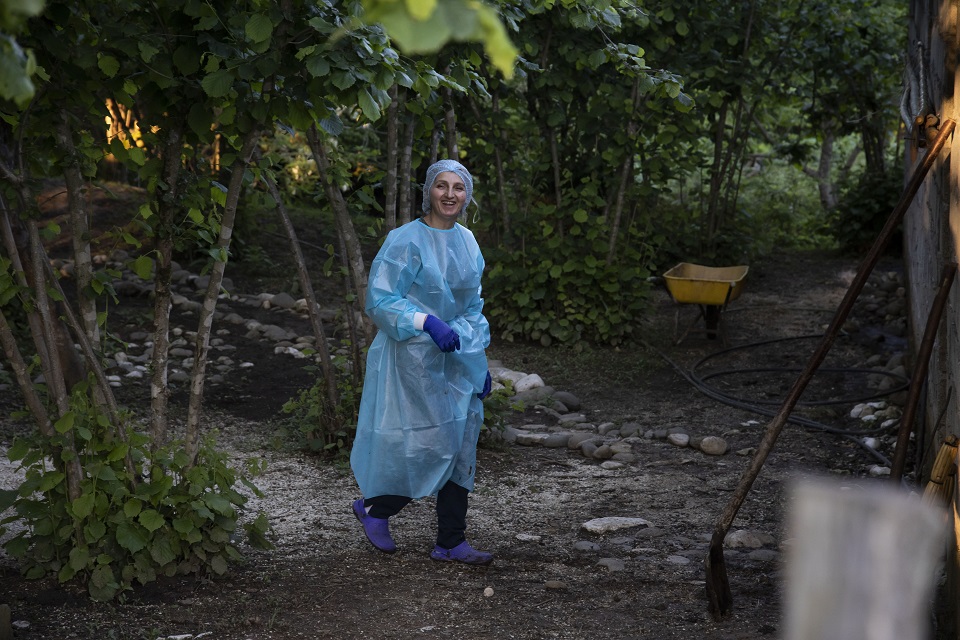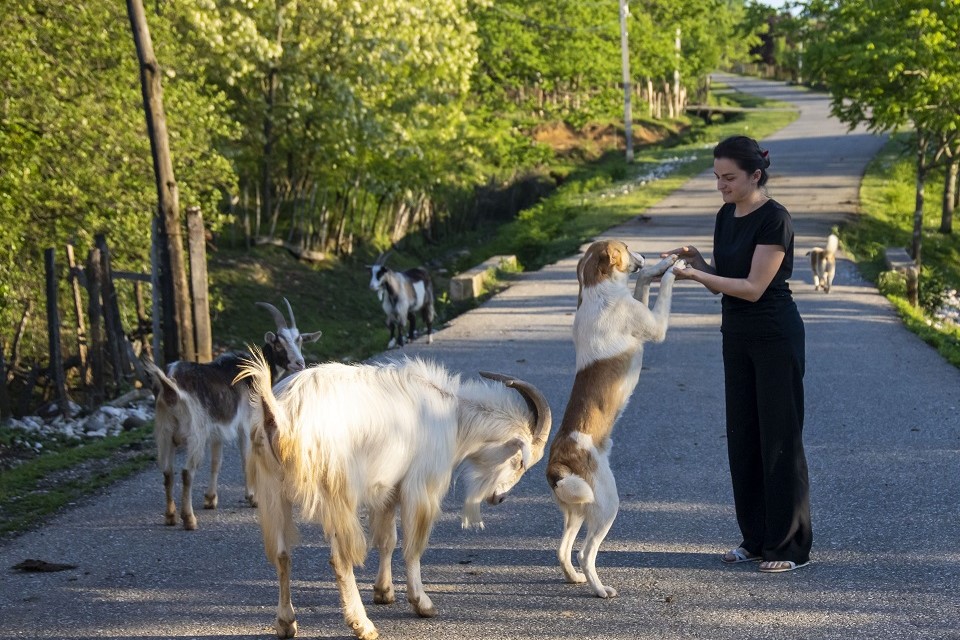Farmer Field Schools help women realize bold ideas
Date:

Mtvarisa Kekutia was 22 years old when she got married and moved to the village of Gurdzemi in Martvili Municipality. It was then that she decided to start dairying: she raised one calf, then gradually increased her stock and started making cheese, butter and cream.
Taking care of four children and being a dairymaid at the same time was not easy, especially in such difficult conditions where the infrastructure did not help. “I used to worry a lot, even about the care and hygiene of the cows,” recalls Mtvarisa. Years passed, but then a positive turning point in her work was brought by her eldest daughter, Anna.

Anna Jgerenaia is 25 years old. She is pursuing her master’s degree in biology at Kutaisi Akaki Tsereteli State University, and now she has started running the farm together with her mother. “When I came home, I could see that my mother’s hard work was not yielding the right results due to the lack of proper conditions, so I decided to help,” says Anna. And indeed, she soon took part in a project offered by the Rural Development Agency and built a new cowshed with the allocated funding. “As we had a very small space, we had to sell all of the offspring,” she explains. “Now we have 22 cows and calves, but the space will accommodate more in the future. I spent a week drawing a sketch of the building with my own hands, but when the space was finally built, I realized that it was worth all the effort.”
The support of her daughter gave Mtvarisa new motivation and joy, so when she was offered the opportunity to open and lead a field school for farmers in Gurdzemi in 2021, she eagerly agreed. At that time, her and Anna’s activities combined the production of five types of dairy products: matsoni, nadughi, butter, cream and cheese. However, their participation in the initiative enriched this assortment with Italian flavours and fundamentally changed their attitudes towards dairy products.
The Farmer Field School is part of the joint project between UN Women and the Food and Agriculture Organization of the United Nations called “Promoting the Economic Empowerment of Women Farmers by Supporting Dairy Production through Farmer Field School (FFS) Approaches”. It operates in the Samegrelo-Zemo Svaneti region and serves to establish a network of female farmers and conduct trainings for them to strengthen and develop relevant skills.
With the help of the platform, women farmers learn international standards of food safety and of nutrition safety, as well as modern cheese production technologies, including how to make Italian caciotta and grilled cheese. With the support of the training center of Liberty Bank, a signatory to the Women’s Empowerment Principles of the United Nations, the participants deepen their entrepreneurship, leadership and business management skills. In addition, the training also raises their awareness about women’s rights and domestic violence.
“We learned a lot about cattle feed, diseases and cheese production itself,” reflects Mtvarisa. “I also liked the preparation of various kinds of Italian cheeses. On the whole, I was very happy that this project made us women more active—and involved us in advocacy and public life as well.” Anna adds: “Through these trainings, I learned to look at the farm from a business perspective. It is good that we also discussed equality, because without gender equality, it is difficult for women to start their own business.” Anna is preparing to take another bold step. She wants to open a new facility in Gurdzemi for tourists called The Cheese House, a small complex that will also include a special room where visitors can observe cheese production and the ageing process.
Within the framework of the project, 20 field schools will be created in eight municipalities, and 1,000 farmers will be trained. The project “Promoting the Economic Empowerment of Women Farmers by Supporting Dairy Production through Farmer Field School (FFS) Approaches” is implemented with the financial support of the Swiss Agency for Development and Cooperation.